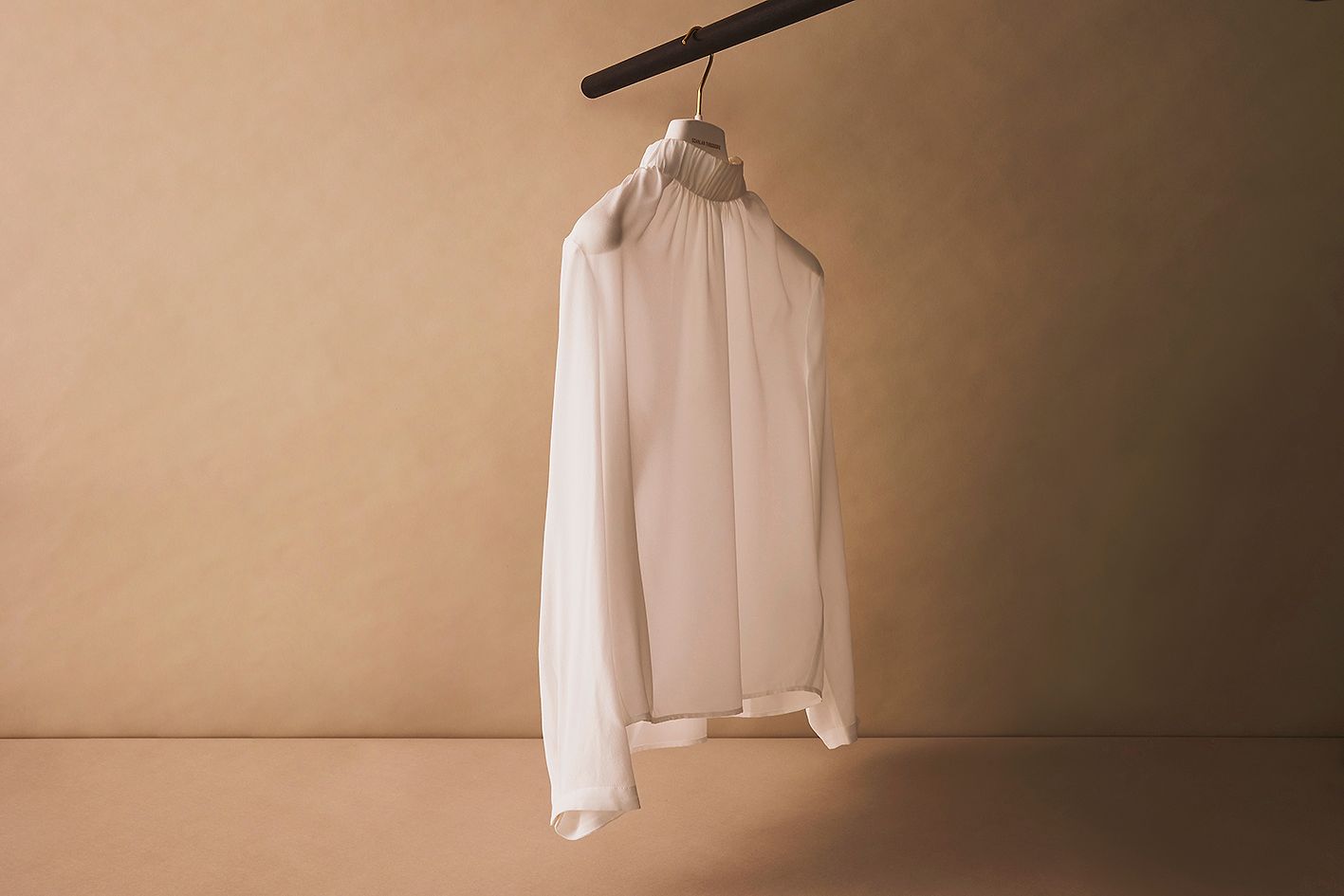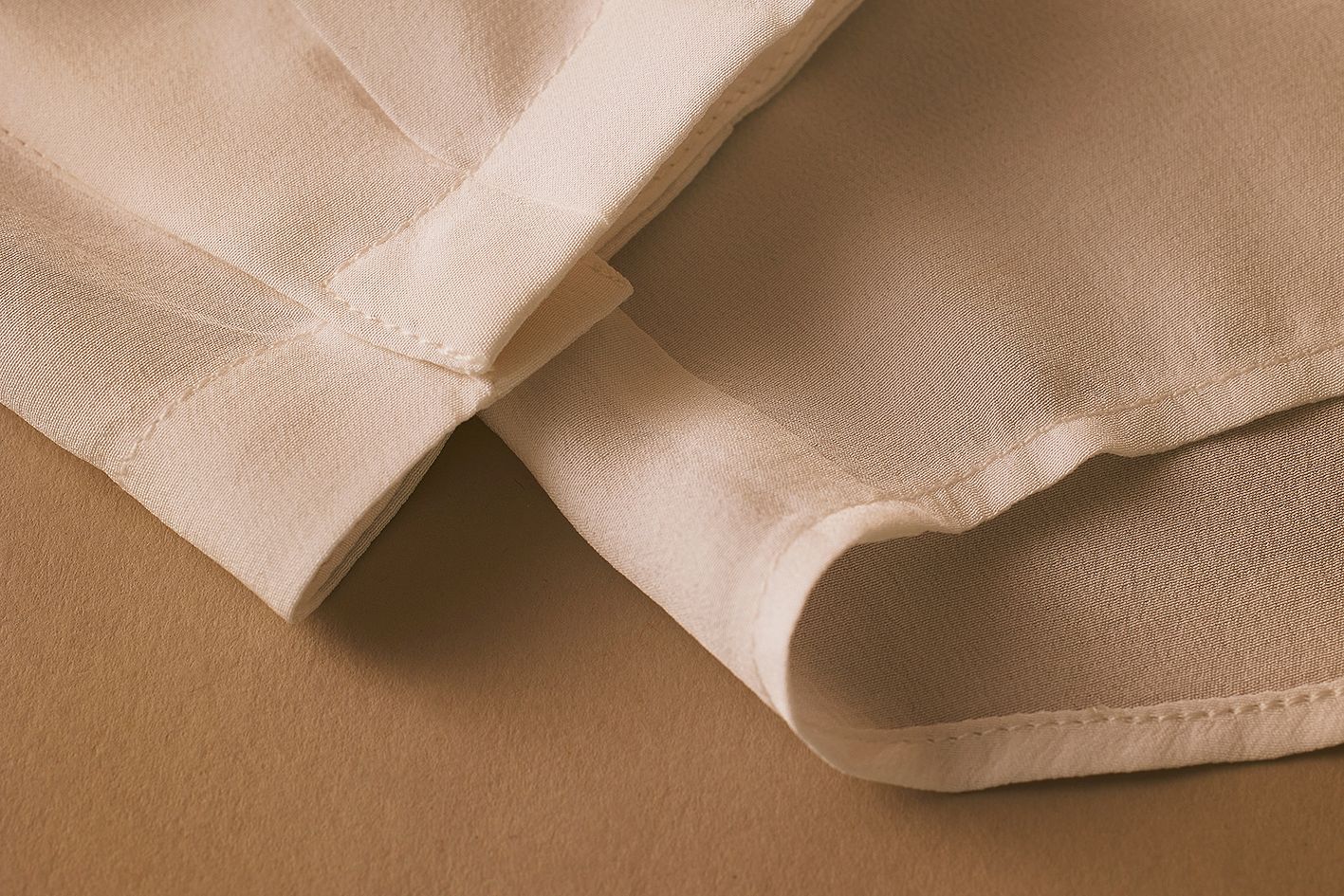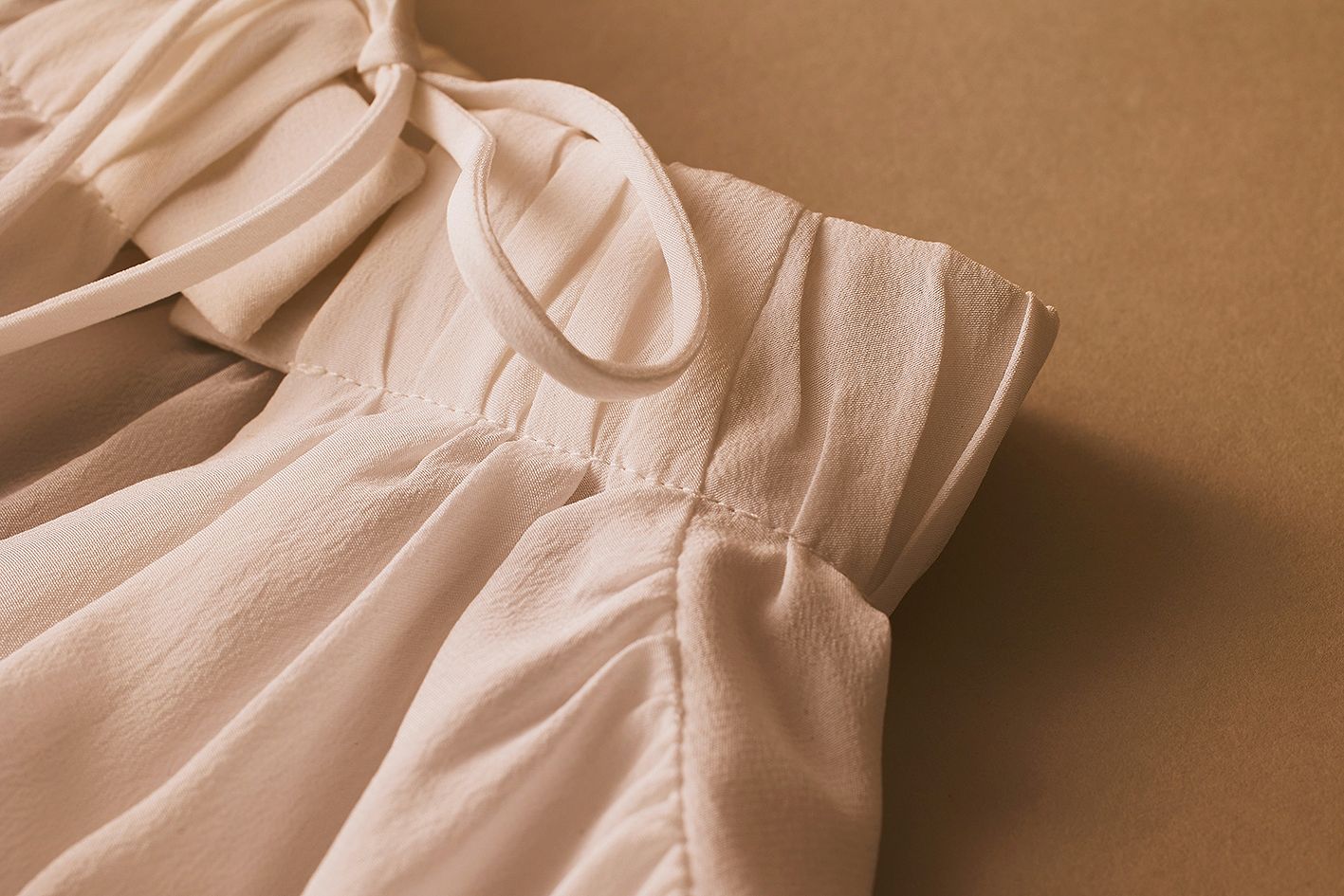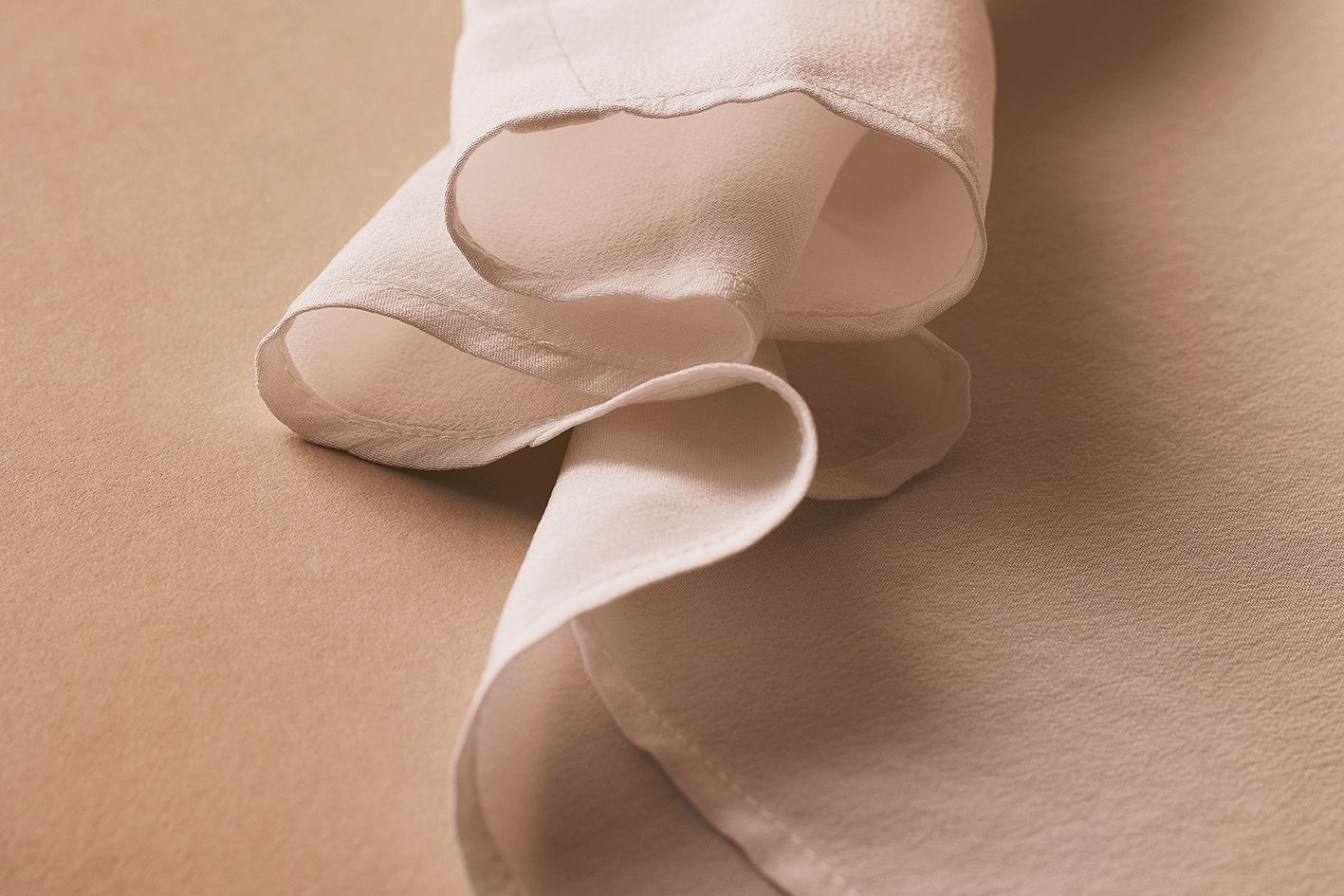Silk Care Guide

Epitomising the elegance of refined femininity, Scanlan Theodore’s silk fabrications are loved for their fine fluidity. Each piece is created from 100% silk, utilising silk filaments which have been highly twisted to achieve a lightweight fabrication, with a matte texture and soft drape.
Benefits of Silk
- Delicate and fine
- Lightweight and breathable
- Soft drape silhouette
How to wash Silk
For laundering, we recommend a mild dry clean only. Silk pieces should not be laundered after each wear, but rather the garment should be hung to ventilate the fabrication.
- Mild dry clean only
The buttons utilised by Scanlan Theodore for our silk garments are crafted from real mother of pearl, carefully selected for their inimitable and iridescent lustre. All buttons must be covered prior to laundering to protect the natural material from chipping or discolouring. Chipping can occur if the buttons have not been correctly covered and have come into contact with the drum of the dry-cleaning machine.
- Buttons must be masked during laundering
How to Store Silk
Hang and store silk garments away from sunlight, as sunlight may cause fabric damage or discolouration.
- Should be stored folded, not hung, away from sunlight
We have shared some guidance to ensure that your Scanlan Theodore Silk Garments and Silk Collections stand the test of time and can be enjoyed for years to come, just as they were designed to. If you have any further questions, please submit a request to our Client Experience Team.










